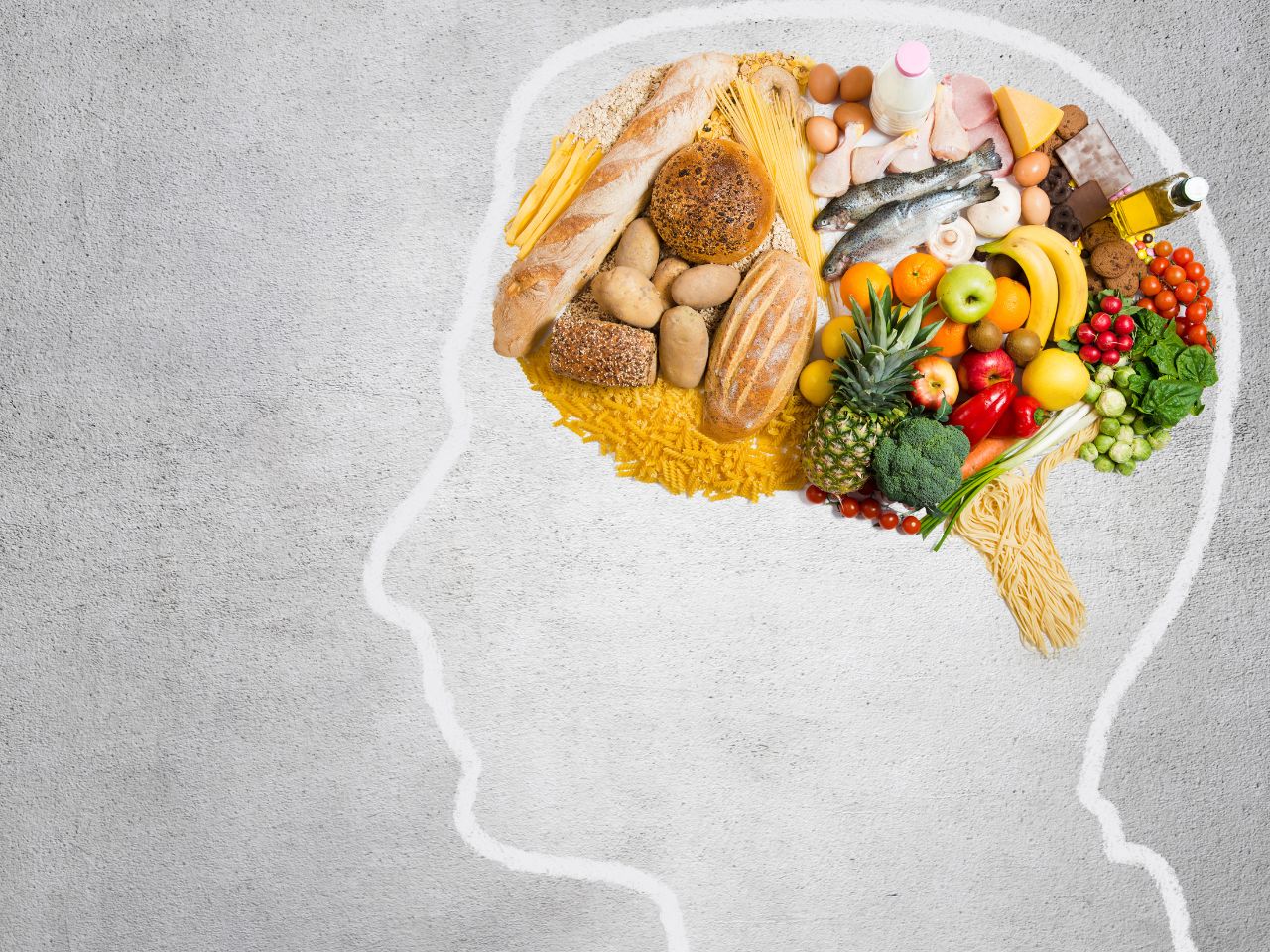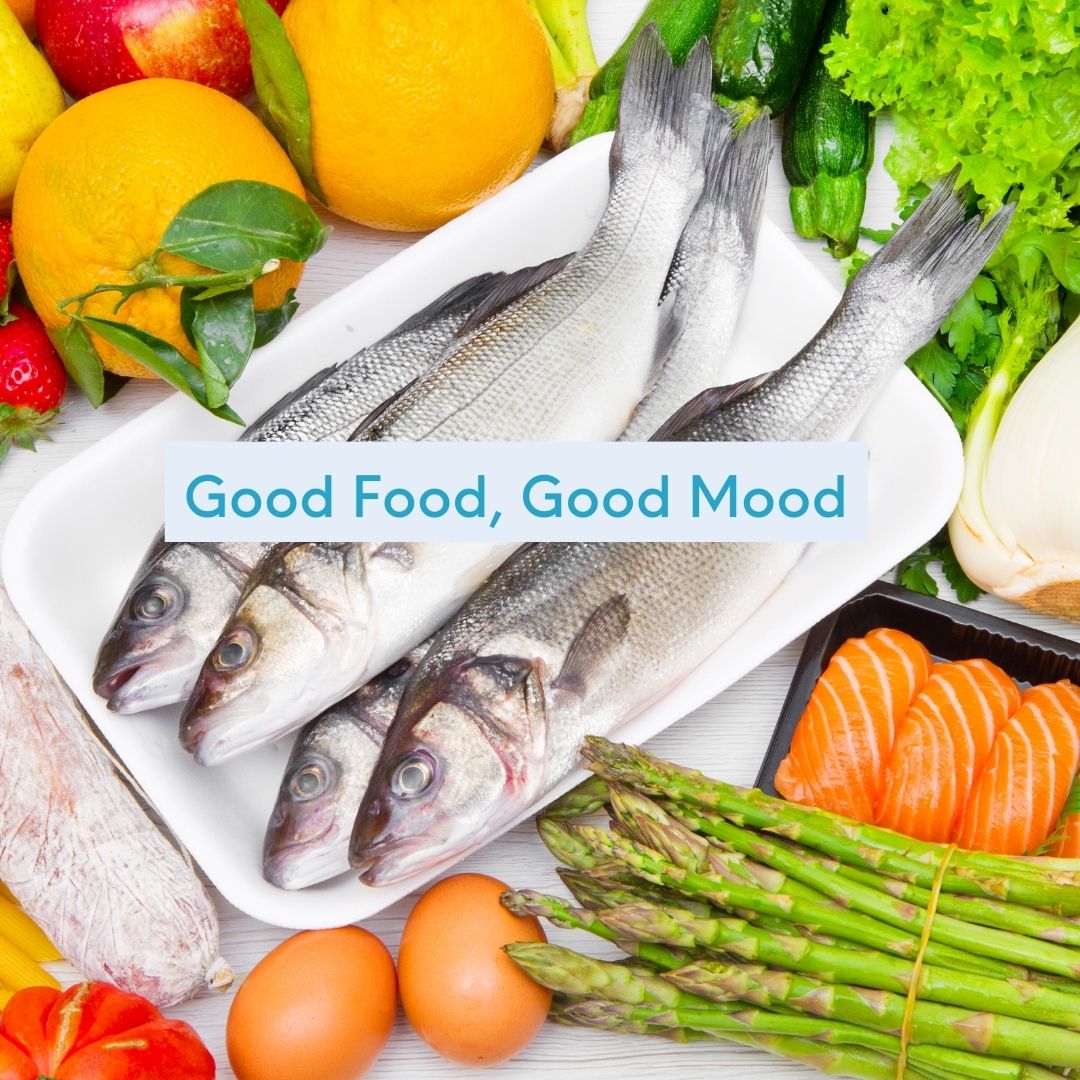Brain Foods
The top foods to improve brain function and brain power.
Brain Foods
The top foods to improve brain function and brain power. Discover the best food for better mental health.
Food for Mental Health
Eating well is good for your mental as well as your physical health. The brain requires nutrients just like your heart, lungs or muscles do. But which foods are particularly important to keep our grey matter happy?

Top Foods for Brain Health
1. Wholegrains
Loaded with folate and vitamin B6, whole grains can serve as a great brain stimulator. They contain fibre and vitamins that help improve blood flow and circulation throughout the brain. Whole grains also aid in blood-sugar stability, which helps memory function. Like everything else in your body, the brain cannot work without energy. The ability to concentrate and focus comes from the adequate, steady supply of energy – in the form of glucose in our blood to the brain. Achieve this by choosing wholegrains with a low GI, which release glucose slowly into the bloodstream, keeping you mentally alert throughout the day. Opt for whole grains such as 100% whole grain bread, brown rice, quinoa, oat snacks, porridge and as a treat popcorn.
2. Oily Fish
Essential fatty acids cannot be made in the body, so they must be consumed through diet or supplements. DHA is vital for brain function and has been shown to improve memory and concentration. DHA is in salmon, mackerel, sardines or tuna. Supplementation with a pure natural fish oil such as Eskimo Brain 369 is required if oily fish is not eaten at least twice a week. Omega-3s are vital for healthy brain function, heart function, joints and general well-being. Low DHA levels have been linked to a higher risk of developing Alzheimer’s disease and memory loss.
3. Blueberries
Evidence accumulated at Tufts University in the United States suggests that the consumption of blueberries may be effective in improving or delaying short term memory loss. These dark purple berries are a powerhouse of antioxidants and have been shown to help boost memory by activating brain-protective enzymes. Add fresh blueberries to your morning porridge or granola for a sweet taste without any added sugar. My favourite blueberry snack is blueberries served with 2 to 3 tablespoons of Greek yoghurt and manuka honey.
4. Tomatoes
There is good evidence to suggest that lycopene, a powerful antioxidant found in tomatoes, could help protect against the kind of free radical damage to cells which occurs in the development of dementia, particularly Alzheimer’s.
5. Avocado
The healthy fats in avocado help the brain to function and raise your ability to concentrate. It’s also been shown to help with nutrient absorption and is packed with antioxidants, which are always good!
6. Spinach
Who knew Popeye was also a genius! Spinach is a dark green leafy vegetable that is loaded with vitamin E, which has been shown to improve cognitive function. Vitamin E helps increases brain tissue and released dopamine which controls information flow in the brain. Further spinach contains lutein, an antioxidant that could protect against cognitive decline.
7. Eggs
Eggs are a brain superfood. Eating a high-nutrient protein like eggs (which have nutrients including choline, omega-3s, zinc, and lutein) will help concentration. Egg yolks are packed with choline, which helps memory development. Serve hard boiled, scrambled, poached or in an omelette for a very filling breakfast.
8. Nuts and Seeds
This food group are good sources of the antioxidant vitamin E. This vitamin is associated with less cognitive decline as you age. You only need an ounce of them a day to get this benefit. Good choices are walnuts, almonds, flaxseeds and pumpkin seeds.
A study published in the American Journal of Epidemiology suggests that a good intake of vitamin E might help to prevent cognitive decline, particularly in the elderly.
9. Brainpower Supplements
Although research linking diet and dementia is still in its infancy, there are a few important relationships between nutrients and brain health that are worth exploring. Having a nourishing, well rounded diet gives our brain the best chance of avoiding disease. If your diet is unbalanced for whatever reason, you may want to consider a multivitamin and mineral complex and an omega-3 fatty acid supplement to help make up a few of the essentials.
How much omega-3 is enough? Take 500mg EPA and DHA to avoid deficiency, 1g EPA & DHA for proactive support, and 2 to 4g EPA & DHA for high intensity support.
Eskimo Brain 369 has these quantities in just one 5ml teaspoon or 4 capsules. Eskimo Brain 369 also has the added Eskimo Fish Oils are one of the cleanest fish oils on the market less than detectable levels of mercury, dioxins, P.C.B’s, Cadmium and other heavy metals that may be present in other fish oils. Don’t be fooled by some 1000mg fish oil soft gels, this refers only to the size of the soft gel, not the levels of EPA or DHA.
If you are considering taking a supplement it is best to discuss this with a doctor or qualified healthcare professional.

